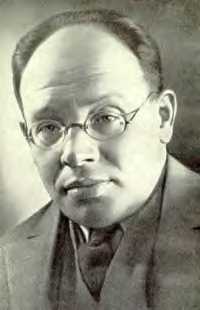Isaac Babel (Isaac Babel)

Author. A master of the short story, he is regarded by many as the greatest Russian writer of the 1920s. Born in Odessa, Ukraine, to a family of Jewish merchants, he began writing as a teenager under the influence of Maupassant. In 1916 Babel met author Maxim Gorky, who published two of his stories but advised him to get some life experience before setting out on a literary career. In 1920 Babel joined the Red Army as a correspondent during the Soviet invasion of Poland; his experiences there resulted in his masterpiece, “Red Cavalry” (1926), a cycle of stories in which the brutality of war was depicted in terse, ornamental prose. It placed Babel in the forefront of new Soviet authors. “Odessa Tales” (1931), Babel’s second story collection, described the colorful adventures of Jewish gangsters in the author’s native city immediately after the revolution. Babel also wrote two plays, “Sunset” (1928) and “Marya” (1935), and several independent stories, the most famous of which are “The Sin of Jesus”, “First Love”, “The Story of My Dovecot”, and “Guy de Maupassant”. With regimentation of the arts under Stalin Babel found it increasingly difficult to write and he published little after 1932, supporting himself by writing film scripts. At a 1934 meeting of the Union of Soviet Writers, when party hacks demanded to know why he was no longer publishing, Babel replied, “I have mastered a new literary genre: the genre of silence”. The following year Stalin launched the purges in which millions of Soviet citizens would be murdered or sent to the gulag, and which would decimate the Soviet intellectual and artistic communities. Babel survived the first waves of persecution thanks to his friendship with Gorky and the protection of Nikolai Yezhov, the bloodthirsty head of the NKVD (a forerunner of the KGB); but with Gorky’s death in 1936 and Yezhov’s arrest in 1938, Babel’s position became precarious. He refused to compromise his gifts by writing works glorifying Stalin, as all other Soviet authors were expected to do, and retreated deeper into silence. That silence became permanent after May 15, 1939, when Babel was finally arrested by the NKVD. He was never heard from again. After World War II Soviet authorities informed Babel’s family that he had died in a Siberian labor camp in March 1941, but the truth was revealed following the 1991 collapse of the USSR. According to KGB documents, Babel was taken to the Lubyanka Prison in Moscow, where he was tortured into confessing to false charges of espionage and conspiring with Trotskyites. He later recanted, but was convicted by a military court and shot on January 27, 1940. As with many of Stalin’s Muscovite victims, he was cremated and his ashes buried in an unmarked mass grave at the Donskoi Cemetery. In 1954 Babel was “posthumously rehabilitated” by the Soviet government and his work, which had been banned after his arrest, was allowed to appear again in the Soviet Union. (bio by: Bobb Edwards)
Born
- July, 13, 1894
Died
- January, 01, 1940
Cemetery
- Donskoi Monastery Cemetery
- Russia

